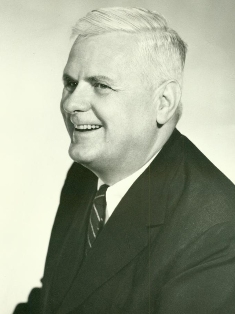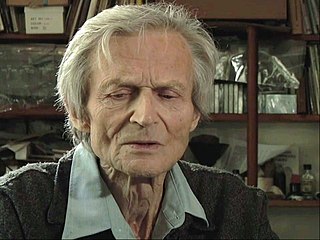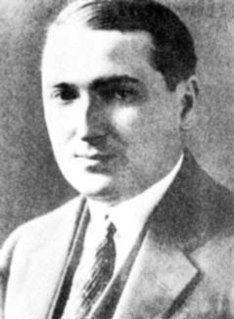 W
WWilhelm Friedrich Ackermann was a German mathematician best known for the Ackermann function, an important example in the theory of computation.
 W
WAlonzo Church was an American mathematician and logician who made major contributions to mathematical logic and the foundations of theoretical computer science. He is best known for the lambda calculus, Church–Turing thesis, proving the unsolvability of the Entscheidungsproblem, Frege–Church ontology, and the Church–Rosser theorem. He also worked on philosophy of language.
 W
WWilliam Craig was an American academic and philosopher, who taught at the University of California, Berkeley, in Berkeley, California. His research interests included mathematical logic, and the philosophy of science, and he is best known for the Craig interpolation theorem.
 W
WAndrzej Grzegorczyk was a Polish logician, mathematician, philosopher, and ethicist noted for his work in computability, mathematical logic, and the foundations of mathematics.
 W
WLouise Hay was a French-born American mathematician. Her work focused on recursively enumerable sets and computational complexity theory, which was influential with both Soviet and US mathematicians in the 1970s. When she was appointed head of the mathematics department at the University of Illinois at Chicago, she was the only woman to head a math department at a major research university in her era.
 W
WStephen Cole Kleene was an American mathematician. One of the students of Alonzo Church, Kleene, along with Rózsa Péter, Alan Turing, Emil Post, and others, is best known as a founder of the branch of mathematical logic known as recursion theory, which subsequently helped to provide the foundations of theoretical computer science. Kleene's work grounds the study of computable functions. A number of mathematical concepts are named after him: Kleene hierarchy, Kleene algebra, the Kleene star, Kleene's recursion theorem and the Kleene fixed-point theorem. He also invented regular expressions in 1951 to describe McCulloch-Pitts neural networks, and made significant contributions to the foundations of mathematical intuitionism.
 W
WRózsa Péter, born Rózsa Politzer, was a Hungarian mathematician and logician. She is best known as the "founding mother of recursion theory".
 W
WEmil Leon Post was a Polish-born American mathematician and logician. He is best known for his work in the field that eventually became known as computability theory.
 W
WAlfred Tarski, born Alfred Teitelbaum, was a Polish-American logician and mathematician. A prolific author best known for his work on model theory, metamathematics, and algebraic logic, he also contributed to abstract algebra, topology, geometry, measure theory, mathematical logic, set theory, and analytic philosophy.
 W
WAlan Mathison Turing was an English mathematician, computer scientist, logician, cryptanalyst, philosopher, and theoretical biologist. Turing was highly influential in the development of theoretical computer science, providing a formalisation of the concepts of algorithm and computation with the Turing machine, which can be considered a model of a general-purpose computer. Turing is widely considered to be the father of theoretical computer science and artificial intelligence. Despite these accomplishments, he was never fully recognised in his home country during his lifetime due to the prevalence of homophobia at the time and because much of his work was covered by the Official Secrets Act.